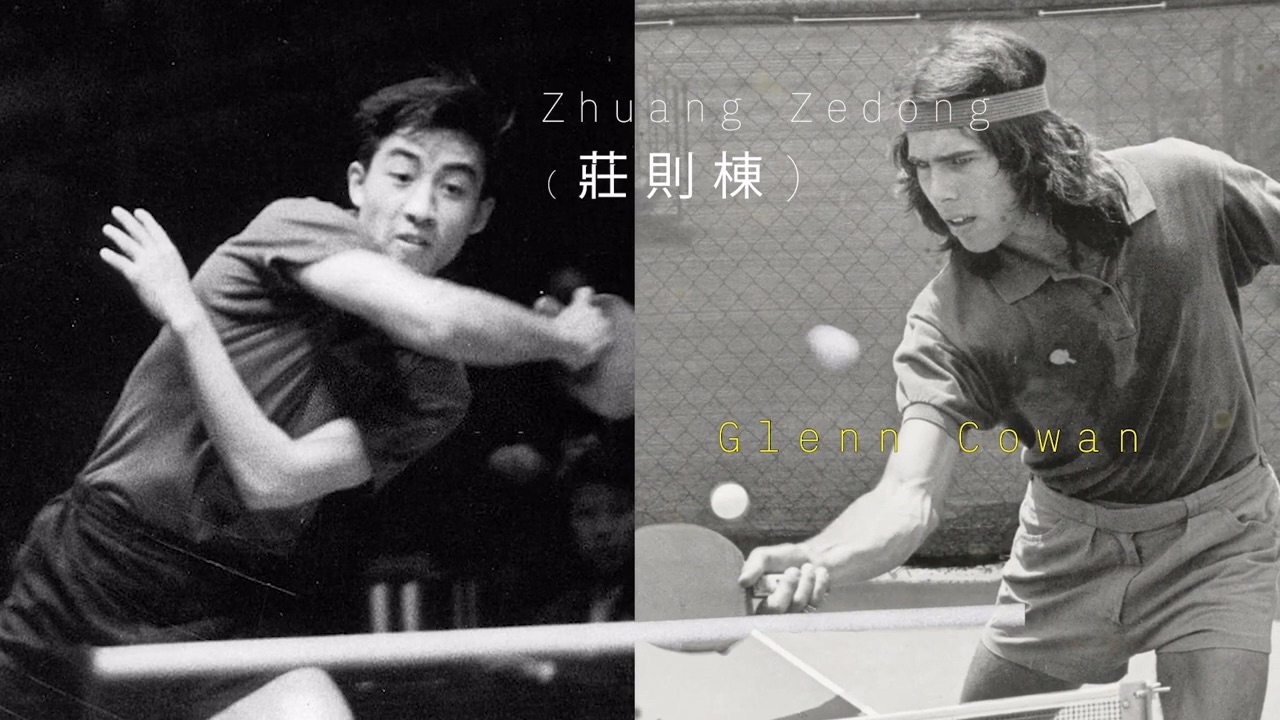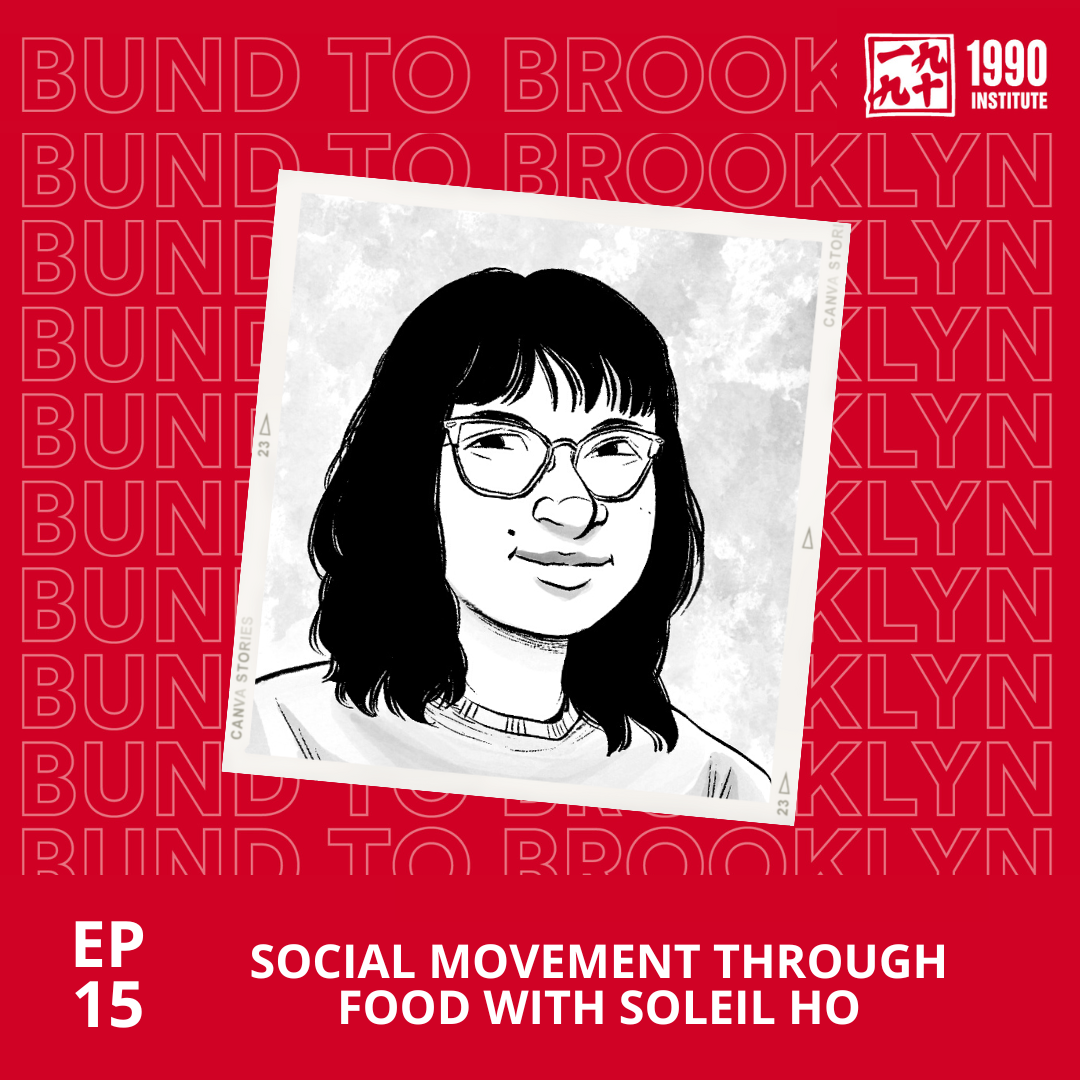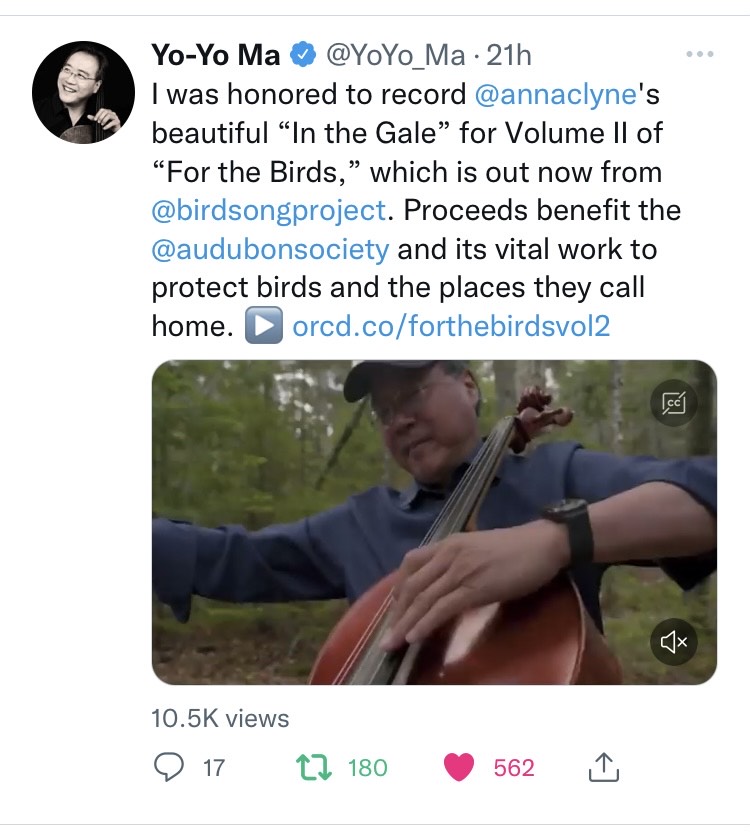| | | Dear Friends, Happy Summer! Hope you are keeping cool. Check out our Spotlight section below to see what’s new at the 1990 Institute. We’re getting ready for our brand new Teachers Workshop starting at the end of July. In the meantime, see our new video on how a new era in U.S.-China relations was set up by ping pong diplomacy and hear our new podcast with San Francisco Chronicle food critic Soleil Ho. Thanks for your continued support of the 1990 Institute and newsletter. Please share this newsletter with your friends and family and encourage them to subscribe. |
| |  |
|
| Where did the phrase ping pong diplomacy come from? Learn about how a serendipitous encounter between Chinese and U.S. table tennis players in Japan set in motion a new era in U.S.-China relations. See our new video here. |
| | How will you move forward from the Vincent Chin case? By Frances Kai-Hwa Wang In June 1982, a 27-year-old Chinese American in Metro Detroit named Vincent Chin was beaten to death with a baseball bat by two white auto workers who blamed the Japanese for the U.S. auto industry’s massive layoffs. After a plea bargain, the men were sentenced to three years probation, fined $3,780, and never spent a day in jail. Two federal civil rights trials and a civil suit followed. Such a light sentence for such a brutal killing brought Asian Americans together across ethnic lines to form multiethnic and multiracial alliances, to organize for civil rights, and to advocate for change. On the 40th anniversary of Chin’s death, his story continues to inspire and move the Asian American community to solidarity and action. This year, there were commemorations in Detroit and across the country, followed by a Unity March in Washington D.C. However, in today’s political landscape, which is increasingly racist, sexist, violent, and exacerbated by COVID-19-inspired anti-Asian American sentiment, it is not enough to know about this one case of injustice but to harness that outrage and use it for good. Stop AAPI Hate has collected reports from nearly 11,000 Asian Americans about hate crimes or hate incidents since the start of the pandemic to December 2021. Another study by AAPI Data and Momentive indicates that those self-reported numbers are likely an undercount, and that closer to 12.5% of Asian Americans experienced a hate incident or hate crime in 2020 and 15% in 2021, with 29% reporting that they ever experienced a hate incident or hate crime. “The blaming of Asians and marginalized communities for various social, structural, and systemic issues is not new. Nor is the violence that is emboldened by these claims,” Rachel Koelzer, communications manager at NAKASEC, a national Korean American advocacy group, told PBS NewsHour. “Real solutions include addressing the root causes of violence: Access to vital resources; stopping hate speech, especially by people in power; data collection with language access and disaggregation for our diverse communities; and taking action on immigration.” This week also saw the 50th anniversary of Title IX, for which Sen. Mazie Hirono unveiled a portrait of the late Congresswoman Patsy Takemoto Mink at the U.S. Capitol. “Patsy was a champion for social justice, equality, and civil rights, and a trailblazer in every sense of that word,” Hirono said in her remarks. “Thanks to Title IX, more women than ever before are leading in government, business, and of course, in medicine. But while we have come a long way since Patsy was rejected from medical school because of her gender — of course we still have a way to go for true equity. We need to strengthen Title IX and protect the rights of every student to a welcoming and supportive school environment.” As Americans respond to the U.S. Supreme Court decision overturning Roe v. Wade, Asian Americans and Pacific Islanders are also showing up, speaking out, standing up for one another, calling for justice, calling for change. Creating community together. What will you do in this moment? |
| |
|
| | 40 years after Vincent Chin’s death, activists work to keep legacy from fading | PBS NewsHour “Many Asian Americans are asking ourselves, ‘What is our responsibility as Asian Americans in combating racism and xenophobia in this country? How can we meaningfully show up for our neighbors who have been dealing with this violence for decades?’” JustUs for Vincent: Finding home between the Vincent Chin case and COVID-10 | The Emancipator This week, Asian American writers pay tribute to Vincent Chin on the 40th anniversary of his death: ‘Lilo & Stitch’ Director Got ‘Frustrated’ by ‘Frozen’ Praise: We Did Sisterhood Over Romance First | Variety “To be clear, I think ‘Frozen’s’ great. But it was a little bit frustrating for me because people were like, ‘Finally, a nonromantic relationship with these two girls,’ and I thought, ‘We did that! That has absolutely been done before.’” China Built Your iPhone. Will It Build Your Next Car? | Wired Gadget manufacturers are getting into the car-making business. That could shake up the auto industry, global trade, and geopolitics. The Rise and Precarious Reign of China’s Battery King | Wired Zeng Yuqun is China’s most prolific battery billionaire. His ascent has major implications for a world increasingly reliant on electric vehicles. Hirono Honors Patsy Mink at U.S. Congress Portrait Unveiling on 50th Anniversary of Title IX | Rafu Shimpo Sen. Mazie Hirono celebrated the life and legacy of Patsy Mink, who introduced and championed Title IX, which was renamed the Patsy T. Mink Equal Opportunity in Education Act after Mink’s passing in 2002. Home health providers protest 24-hour shifts after ‘insulting’ settlement reached | NBC News Lai Yee Chan, a home care attendant and leading organizer against the 24-hour workday, said she has received $200 for roughly 6,000 overtime hours. March protesting anti-Asian hate urges mobilizing for elections and inclusive education | NBC News “We’re American, no matter what we look like, and we belong here,” one attendee said. |
| |  | In our newest episode of our Bund to Brooklyn podcast, we talk with the San Francisco Chronicle's food critic Soleil Ho about food and how the conversation around appropriation has evolved over the last decade. Listen here. |
| |
|
| | - NEW U.S.-CHINA VIDEO: PING PONG DIPLOMACY – A serendipitous encounter in 1971 between two table tennis players – one from the U.S. and one from China – set in motion a positive change in diplomatic exchanges that political leaders from both countries had seemed to desire but couldn’t find an opening to affect. Our new video shares that the origin of the phrase ping pong diplomacy originated from friendly games of table tennis between the citizens of the two countries which ultimately led to the formal normalization of U.S.-China relations in 1979. Find out how sportsmanship and the spirit of “Friendship First, Competition Second” ushered in a new chapter in U.S.-China relations in this entertaining new video called “Ping Pong Diplomacy.”
- VIRTUAL TEACHERS WORKSHOP IS OPEN TO EVERYONE AND STARTS ON JULY 30, CONTINUES ON AUGUST 6 – Everyone is a teacher and everyone is a learner. We are offering webinars for those that would like to learn more about Asian American studies (July 30) and modern China (August 6). We are excited to announce we’ve added an additional speaker, Margaret Yee from the Asian Art Museum, to our stellar list of guest speakers at our first session on July 30. Join us for these FREE, ONLINE sessions that offer professional development for teachers and valuable resources for all. We welcome you to register for one or both tracks. Interactive sessions with the speakers and educators are included. Attendees will be provided with resources and lesson guides. Find more information on our event page.
- Track 1: Missing in History: The Asian American Journey
Saturday, July 30, 2022, 8 am-11:30 am PT (11 am-2:30 pm ET) - Asian American history is part of American history. This workshop will address key issues on Asian Americans and follow an ethnic studies framework and curriculum requirements.
- Session 1: The Making of Asian Americans, 8 am PT with Lok Siu, Associate Professor of Ethnic Studies, UC Berkeley, and Margaret Yee, Manager of School and Teacher Programs, Asian Art Museum
- Session 2: Major Asian American Legal Cases that Changed America, 10 am PT with John Trasviña, former California Executive Director, Generation Citizen, and former Dean, University of San Francisco School of Law
- Track 2: The China You Should Know: Past and Present
Saturday, August 6, 2022, 9 am-12:30 pm PT (12 pm-3:30 pm ET) - As an emerging superpower, what impact will China have globally, both economically and politically? This track will focus on Modern China and its impact on the U.S and on the world.
- Session 1: China’s Past Is Always Present, 9 am PT with Thomas Gold, former Professor of Sociology, UC Berkeley
- Session 2: Headline: China, 11 am PT with Clay Dube, Executive Director, U.S.-China Institute, USC
- NEW PODCAST EPISODE WITH SAN FRANCISCO CHRONICLE FOOD CRITIC SOLEIL HO – On Episode 15: Social movement through food with Soleil Ho, we're joined by the San Francisco Chronicle's food critic and James Beard award-winning writer Soleil Ho to talk about how their work uses food to explore larger social issues like race, labor, and gender. We dive into Soleil’s article, "I was done talking about cultural appropriation. The rise in anti-Asian violence pulled me back in," and the many issues around cultural appropriation. Listen to the conversation here.
|
| | Dim Sum - A Little Bit of Heart |
|  | |
|
|
|
| | | | 1990 Institute
P.O. Box 383 | San Francisco, California 94104
contact@1990institute.org www.1990institute.org Copyright 2022, The 1990 Institute. All rights reserved. |
| | | |
|
| |
|
|